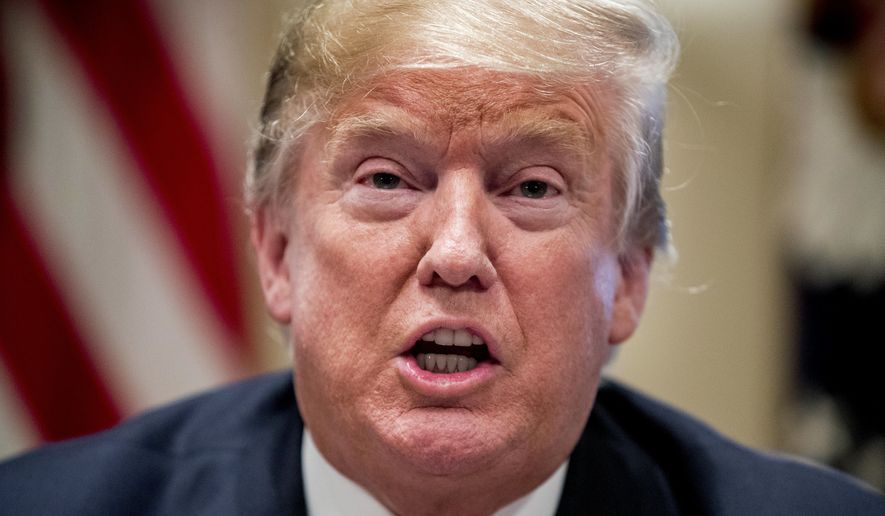
Two years ago on July 31, 2016, the FBI took the momentous step of opening a counterintelligence investigation into Donald Trump’s presidential campaign.
Today, it shows no signs of ending.
FBI agent Peter Strzok, who displayed an intense dislike for Mr. Trump in text messages to his lover, started the investigation based on hearsay from an Australian diplomat who shared a drink in London with Trump campaign volunteer George Papadopoulos.
To date, after wiretaps and multiple interrogations, no Trump person has been charged for the reason the investigation started: Did the campaign coordinate with Moscow to interfere in the election?
The drink in London may have started the inquiry, but it was the Democratic Party-orchestrated dossier that would fuel it with an unsubstantiated tale of an “extensive conspiracy” between Mr. Trump and the Kremlin.
Dossier author Christopher Steele, like Mr. Strzok, privately expressed a strong dislike of Mr. Trump — so strong that the former British spy hoped his gossipy memos would end the candidacy.
Mr. Strzok’s team used the dossier to obtain a yearlong wiretap on another volunteer, Carter Page, that allowed them to spy on electronic communications during and after the campaign.
The dossier’s influence went further. It became the FBI’s template for whom to interview and what questions to ask.
Then-FBI Director James B. Comey told ABC News during his book tour: “This guy [Steele], who’s credible, says these things are true. OK. That means we should try and replicate that work to see if we can develop the same sources.”...
Said J.D. Gordon, who has become an unofficial spokesman for fellow campaign workers who went through a long inquisition: “As a person who always supported law enforcement agencies 100 percent, it’s profoundly disappointing to learn how some key leaders have stealthily waged a two-year, scorched-earth campaign against political figures they dislike merely based on rumor, innuendo and erroneous media reports.”Since that last day in July 2016, the Justice Department investigation has grown far wider and more complex than when Mr. Strzok began looking at Russian computer hacking.A status reportDeputy Attorney General Rod Rosenstein appointed special counsel Robert Mueller in May 2017 to pick up the Russia investigation midstream after Mr. Trump fired Mr. Comey.Mr. Mueller’s agenda goes beyond the election to look at suspected obstruction of justice by Mr. Trump, including, The New York Times says, his ubiquitous tweets that often attack the special counsel’s Democrat-heavy staff attorneys. Mr. Mueller also is looking at Russian influence during the presidential transition and inauguration.The two indictments brought against Russian hackers and social media disruptors did not charge Trump associates.After two years, not one of Mr. Steele’s eight major collusion charges has been proved publicly.Former Trump campaign manager Paul Manafort goes on trial Tuesday in Alexandria, Virginia, to face federal tax and bank fraud charges.The Manafort matter has been overseen by Mr. Mueller’s top gun, Andrew Weissmann, who gained fame going after Mafia soldiers and Enron
